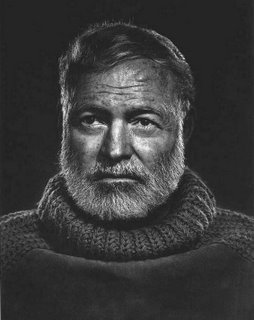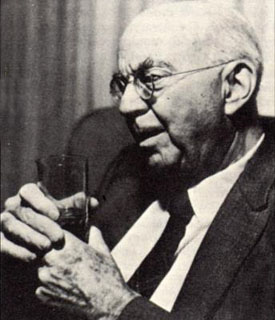A few weeks ago, I wrote about Sartre and his novel 'The Age of Reason'. well, today I came across this marvelous article about the writers who did head out to fight in the Spanish Civil War: Ernest Hemmingway, John Dos Passos; and a cameo by George Orwell.

In late September, Hemingway wrote his editor at Scribners, Maxwell Perkins, “I hate to have missed the Spanish thing worse than anything in the world but have to have this book finished first.” The civil war, which most people assumed would last a few months, accommodated Hemingway’s writing schedule; it would go on for another two and a half years. He finished a draft of “To Have and Have Not” and immediately contracted to write a series of newspaper dispatches from the Madrid front. In short order, he also fell in love with Gellhorn, a beautiful and well-connected younger journalist who sailed into his marooned life on Key West just before she was scheduled to depart for Spain herself, on assignment for Collier’s. In Madrid, he offered literary advice and patronage; she educated him in Popular Front propaganda while accommodating him sexually to the extent, according to one biographer, of undergoing a widening procedure known as vaginoplasty.The rest of the article covers some interesting ground about how Hemmingway was basically an apolitical bastard (which we kind of knew) and how Dos Passos managed to lose his idealism in the confluence of events in Spain. There's also a couple of interesting paragraphs as to the real nature of the Spanish Republican Government that was so heavily romanticised (Remember: the main character of Casablanca, Rick Blaine, was supposed to have run arms shipment for the Republicans as his big credential to fighting for liberty). While the truth is predictably turgid, pedestrian and soul-destroying to some (I imagine), it dos liberate us from the layers of myth Hemmingway narcissistically heaped upon it and himself.
John Dos Passos was travelling to Spain as well. He was Hemingway’s friend from their days in Paris, and he had met his wife through him. Hemingway, near the end of his life, portrayed Dos Passos in the nasty last pages of “A Moveable Feast” as a treacherous little “pilot fish” who had led Pauline and her rich friends into Hemingway’s youthful domestic bliss in the twenties and lured him into breaking up his first marriage. But Hemingway’s friendship with Dos Passos was already strained by the publication, in 1936, of “The Big Money,” the third novel of Dos Passos’s “U.S.A.” trilogy, to general acclaim and a Time cover story the week that fighting began in Spain. For a brief moment, Dos Passos was as big as the big man of American letters. It’s hard now to remember that, several generations ago, the trio of great novelists born around the turn of the century—Hemingway, Fitzgerald, Faulkner—was a quartet, with the fourth chair occupied by Dos Passos.
I know it's unfair to such a great article but I do want to quote this next big chunk because you may not have the time to read it all, and this bit is very important.

Intellectuals can hardly keep away from politics any more than other citizens, and probably less, especially in decades like the nineteen-thirties (or this one, for that matter). But, because they typically bring to it an unstable mix of abstraction and narcissism, their judgments tend to be absolute, when nothing in politics ever is. This is why a writer as devoted to the visible, concrete world as Hemingway could nonetheless stumble so badly during his time in Spain: he lacked a sense of politics. The writer forever in search of one true sentence ended up accepting a whole raft of lies. Dos Passos, for his part, lacked the inner toughness to recover from the blow his idealism was dealt by José Robles’s murder and Hemingway’s betrayal. Dos Passos, of course, never wrote another book that came anywhere near the brilliance of “U.S.A.” At the same time, as if his literary flame required the fuel of radical politics to keep burning, after Spain he began a rightward drift, which by the 1964 election had become so extreme that Edmund Wilson wrote him, “I feel obliged to tell you that your article about the San Francisco convention sounded like a teenager squealing over the Beatles. What on earth has happened to you? How can you take Goldwater seriously?” (Even during his Goldwater phase, though, Dos Passos never repudiated his belief in the Spanish Republican cause.) When war, politics, and writers mix, the results are seldom inspiring.What can I say? At least the French existentialist J.P. Sartre stayed home and oversaw an abortion; while George Orwell wrote what he saw and gave us 'Animal Farm' and '1984'. All the same, in our time of a global 'War on Terror' it kind of comes around again for 'the intelligentzia' of today to wrestle and tangle with the cobweb of political deceits being dished about today, on this very day in the first decade of the Twentieth Century; and the bad news is, our generation's 'intelligentzia' seem hardly up to the task. Nobody is taking their gun and running on to the streets. Instead, they're probably writing their little whines on blogs like this one. Or perhaps in order to fight a media war, we need to fight it one weblog at a time.
Quick Shot
Donald Rumsfeld is in Australia and was greeted with this protest:
One demonstrator waved a placard saying: "9/11 was an inside job".That's really the best bit of the article, but I thought it was worth posting here.
Australian Democrats SA leader Sandra Kanck said the rally was originally intended to protest at the proposed new terror laws.
"We would not need terror laws if our Prime Minister had not tied us to the coat tails of (US President) George W Bush and Donald Rumsfeld," she said.
"I have been delighted to hear much sedition here today and I have been delighted to see placards that are saying seditious things.
"But by Christmas this may not be allowed in our democracy."
The War in Iraq must rate highly as one of the more dumb and badly managed campaigns in history. Getting the decisive victory that dispatched the reign of Saddam Hussein was obviously the easy part; getting this democracy thing exported and firmly planted on Iraqi soil has turned out to bee a lot more challenging and the Coalition of the Willing have been found out to be very wanting in terms of persuading Iraq to take on board this thing called Democracy. After all, if this so-called institution could give rise to George W. Bush in the most powerful democratic nation on the planet, may be it is worth resisting. :) Oh no, that's going to be considered seditious by Christmas!
So much of our good democracy is indeed swayed by the 'pundits' and the 'spin doctors' who are in reality re-runs of sophists and demgogues who plagued Greek city-states from ancient times. How do we stop the demagogues in a democracy is going to be one of the biggest issues in our democracy going forwards. That and stopping the backsliding into Middle Age mores like the blurring of the church-state demarcation and this frequent use of torture.

No comments:
Post a Comment